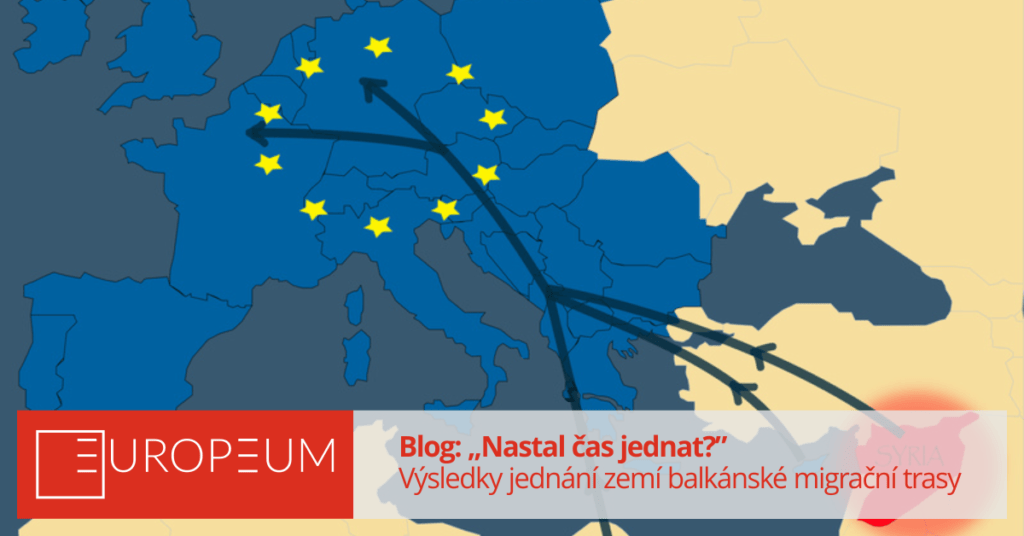‘The time for action is now?’ Results of the Meeting on the Western Balkans Migration Route

While a record number of migrants made their way through the Western Balkans, eleven leaders of the countries most affected by the crisis finally reached a deal on managing the crisis.
- The plan does not provide details on how to accommodate 50,000 migrants in the countries along the Western Balkan route. It thus remains open to different interpretations by countries still unwilling or unable to cooperate on this issue.
- In the meantime, Austria announced it will build a fence on the border with Slovenia, while Slovenia expressed its readiness to do the same on its border with Croatia.
- Following an appeal by the Commission, the countries managed to agree on Thursday evening to provide 12,000 accommodations to shelter migrants.
The leaders of eleven countries that are on the Western Balkan migration route met together on Sunday October 25 to agree upon a common plan to tackle the emergency situation unfolding in the region. After a tense, eight-hour meeting, EU and Balkan leaders agreed with a 17-point plan to cooperate on dealing with the influx of migrants. The plan proposes to achieve a gradual, controlled and orderly movement of persons through the region; a modest, but feasible goal given the grave difficulties in stemming the flow of refugees. The summit took place against a backdrop of record numbers of migrants passing through the Balkans: 9,000 entered Serbia, 11,500 reached Croatia and 13,000 crossed into Slovenia over the weekend of October 24 - 25.
The plan sets out a series of specific measures to be immediately adopted. The crisis highlighted a chronic lack of communication between these states – including EU members – which was belatedly recognized as an urgent problem. Therefore, each state nominated a national contact points in order to facilitate the exchange of information and coordination. This closer communication is likely to ease current tensions and high emotions, especially between Croatia and Slovenia that vocally accused its southern neighbor of directing too many refugees toward its borders.
What will prove most difficult to implement is the provision requiring countries to provide temporary accommodation for 50,000 migrants in reception centers that will be created along the Western Balkan route. However, no details on this measure have been agreed upon. It remains unclear where these centers will be established, how many migrants individual states will accept and what the criteria will be for their allocation.
Moreover, given that these are not legally binding decisions and existing high level of mistrust among the states, it will be difficult to reach agreement over the exact number of migrants to be sheltered. In addition, as Serbian PM Vučić asked, what will the response be ‘if these people do not want to stay in our countries?’ In other words, there is no mechanism in place to keep the migrants attempting to reach Germany and Scandinavia before winter in the Balkan countries.
Crucially, this politically sensitive issue has already raised a degree of negative public sentiment and given a new voice to anti-migrant radical right parties that, although politically irrelevant, may shape public debates to their own benefits on such contested issues and limit the scope of government decisions on this matter. This is particularly the case in Croatia, where the electoral campaign is already in full swing. Therefore, state officials reacted swiftly by explaining that ‘Croatia will definitely not become a migrant hot spot’ or that ‘Serbia will not take 50,000 migrants’ and ‘be turned into a concentration camp.’ The Commission made itself clear on Thursday that refugees will not be permanently accommodated in these countries, but only temporarily protected while winter passes.
Despite pledges ‘to manage the migration flows together’, a major blow to this joint effort came on Wednesday when Austria decided to build yet another fence in the region, this time along its border with Slovenia, in order to provide ‘an orderly, controlled entry’ into the country. In an attempt to prevent becoming a migrant ‘bottleneck’, Slovenia immediately announced that it will erect a fence along its border with Croatia ‘if the situation worsens and the Brussels action plan is not fulfilled’.
This would certainly cause a very dangerous domino-effect in other countries that may try to avoid turning into migrant ‘buffer zones’. Being aware that such movements may shatter the plan, the Commission rather dramatically appealed to countries ‘to implement the plan as soon as possible’ since ‘there is no time to lose if we want to avoid another human tragedy in the Western Balkans’.
What will be crucial for the implementation of these measures in the following weeks is restoring the mutual trust between the states and preventing the building of more fences along their borders. A recent, rather surprising, agreement between Serbia and Croatia, which were bitterly divided over this issues, may serve as a positive example for other countries. The two countries agreed on ‘a speedy transit’ of migrants, by which Croatian trains pick up refugees on the Serbian side of the border and take them to a reception center in Croatia. The hope that the Brussels plan will be implemented was elevated on Thursday evening when it was agreed that Austria will accommodate 5,000, Serbia 3,000, and Croatia and Slovenia 2,000 refugees each.
As the Commission tweeted: ‘No time for procrastination and bureaucracy. The time for action is now.’




